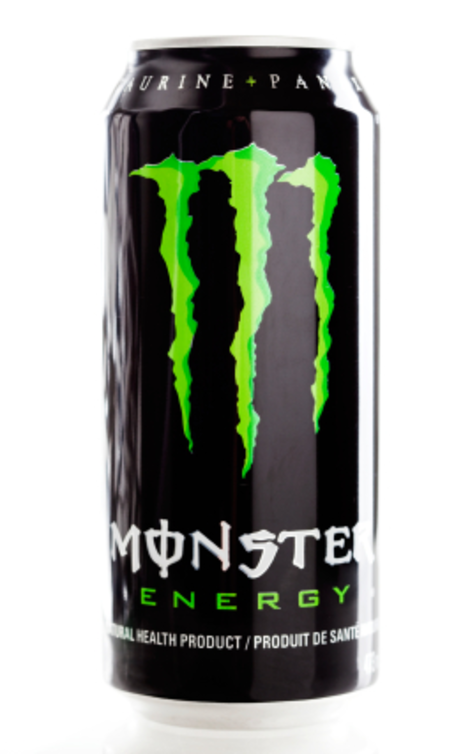Mom Sues Monster Energy Drink Over the Death of Her Teen Son

A California mom has filed a wrongful death lawsuit against the makers of Monster Energy Drink, claiming that the drink is linked to the death of her teenage son.
Paula Morris says her son Alex, 19, would not have died if he hadn't had two cans of Monster Energy Drink every day for three years, reports AP. Alex went into cardiac arrest on July 1, 2013. He was taken to the hospital, where he was pronounced dead.
The U.S. Food and Drug Administration is currently investigating reports of illness, injury or death of people who took products marketed as "energy drinks" or "energy shots." The agency stressed that while it takes the adverse events seriously, the reports themselves do not prove that the products were linked to the illnesses or deaths.
A report released by the FDA late last year shows that between 2009 and 2012, five deaths were reported that alleged a link to Monster Energy products. Details of the FDA's tracking of adverse events allegedly related to products including Monster Energy Drinks, 5-Hour Energy, and Rock Star Energy Drinks can be found here as a pdf. Adverse events allegedly related to Red Bull can be found here, also as a pdf.
Related: 10 little ways to promote a healthy heart
A similar lawsuit was filed against Monster Beverage Corp. last year by the parents of 14-year-old Anais Fournier of Maryland, who went into cardiac arrest and died after drinking two 24-ounce cans of Monster Energy Drink in a 24 hour period. In that case, Monster Energy Drink attorneys have said that there had not been a blood test performed after Anais' death to prove that she died of caffeine toxicity, and that her heart attack was caused by her previously-existing condition. Anais had Ehlers-Danlos Syndrome, a connective tissue disease.
In May of this year, a lawsuit was filed against Monster Beverage Corp. by San Francisco City attorney David Herrera, alleging that "Monster markets it highly caffeinated drinks to children as young as 6 years old, despite scientific findings that such products can cause health problems including severe cardiac events," reports CBS News.
What is in that stuff, anyway?
Labels on Monster Energy Drink cans currently do not display the drink's amount of caffeine, but according to 2012 investigation, consumer reports found that the drink contained 92 mg of caffeine per 8 ounces, or 276 milligrams of caffeine per 24-ounce can. As a reference point, a 16-ounce cup of Starbucks coffee contains 330 mg of caffeine, or 165 mg per 8 ounces.
Nutrient-wise, the nutrition label on Monster Energy drinks says it contains vitamins B2, B3, B6, and B12. Vitamin B3 is also known as niacin.
What's interesting here is that you really have to understand how nutrition labels work to understand what's in these energy drinks. For example, the label on a can of Monster Energy Drink says that it contains 6 mcg of vitamin B12 per 8-ounce serving. It lists this amount as 100% of the recommended daily intake. According to the National Institutes of Health's Office of Dietary Supplements (ODS), the recommended daily intake of vitamin B12, for teens age 14-18 and adults, is 2.4 mcg. In other words, an 8-ounce serving of Monster Energy Drink contains not 100% percent of your RDI of B12, but 250% of your RDI.
Vitamin B12 isn't harmful, although the ODS says it can interact with some prescription medications. However, it does seem like it's a good idea to know how much of each vitamin you're taking in.
The label also says that 8 ounces of Monster Energy Drink contain 1400 mg of "Energy Blend," which consists of unspecified amounts of Taurine, Panax Ginseng, L-Carnitine, Caffeine, Glucuronolactone, Inositol, Guarana, and Maltodextrin.
What do medical experts say?
The American Academy of Pediatrics has warned against the use of energy drinks for children and teens, and advises medical professionals to screen teens for the use of energy drinks and to discuss the dangers of using them with their patients.
"Caffeine can produce harmful health effects in adolescents, including cardiovascular problems, anxiety, insomnia, digestive problems, dehydration, and others," the AAP said in a press release earlier this year. The statement also noted that "energy drinks mixed with alcohol present serious potential for harm and abuse."
A separate clinical report from the AAP stated: "Rigorous review and analysis of the literature reveal that caffeine and other stimulant substances contained in energy drinks have no place in the diet of children and adolescents."
- By Joslyn Gray
11 worst pre-packaged food for kids, visit Babble!
MORE ON BABBLE
The 5 WORST foods for weight loss
The 25 healthiest foods under $1
20 gross, disturbing food facts you'll wish you didn't know

